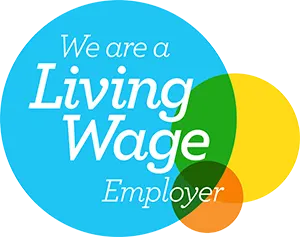This was the question my colleagues and I pondered on our journey back from the October 2023 Next Big 10 meeting. Having joined as part of the 2022 cohort, Ladybridge High School’s group of delegates has undergone significant change moving into the second year of the project due to colleagues moving on to other settings, and the meeting at Wapping High was the first experience of Next Big 10 for four out of the five of our new delegate group. We undoubtedly all left the event feeling inspired, but I personally felt as if this day had made everything I had done thus far in my teaching career ‘click’ into place. I left feeling invigorated and excited for the ways in which I could apply my learning up to this point, and the multitude of fresh ideas the event had provided me with.
As the Early Career Lead at Ladybridge High School, I elected to join the Teaching & Learning Working Group, and a large part of my highly positive experience was down to the conversations held with these colleagues. There is undoubtedly a ‘magic’ that happens when education staff are able to physically get into a room together: as convenient as remote meetings can be in the hectic schedule of school staff, there is no substitute for face to face encounters and the chance to network, share experiences, and do some good old ‘magpieing’! I am grateful to work in a setting which recognises this, and actively supports us as staff to engage in such opportunities.
The group has identified 5 key principles of good CPL. In short, they are:
- Breadth
- Pragmatism
- Disciplined Innovation
- Collaboration
- Action
Our whole-school CPL and the structure of our Early Career programme already have a number of these principles embedded and the leadership at Ladybridge have taken a number of actions in recent years to embed a strong culture of professional growth and learning, and to exemplify this principle for our children. These range from small actions – such as using the language of ‘learners’ rather than ‘pupils’ or ‘students’, and modifying the name of our staff CPD to CPL (Continuous Professional Learning) – to bigger and more visible actions: two of our whole-school principles are ‘Learning is for life’ and ‘Honesty promotes learning’; we have an earlier finish time one day per week to maximise the time available for CPL; staff are given choice and agency in which CPL opportunities they attend; good practice and experiences are regularly shared at morning briefings; and staff are given access to external, expert sources of professional learning through the opportunity to access NPQ qualifications and society subscriptions. There is also an emphasis on ensuring staff wellbeing through regularly seeking feedback on CPL, amending the schedule to accommodate whole-school events such as Open Evening or Parents’ Evenings, and building a fun event – such as the Christmas quiz or summer social – into CPL schedule at the end of term Some of our CPL activities are more progressive – potentially radical: The time I found myself being given one hour to learn and perform ‘Creep’ by Radiohead on a ukelele as part of a staff ‘Battle of the Bands’ is particularly memorable!
At Ladybridge there is a real emphasis on exemplifying the concept that learning is for life and immersing staff in the learning experience we wish to create for our learners. The school even goes so far as to annually run ‘Learning For Life’ drop-down days in the summer term to really bring this to life and allow our learners to explore new skills and passions. Whilst I cannot take any credit for our whole-school CPL programme, I can attest to its success as a participant, and feeling like these sessions are worthwhile and productive for my teaching practice, as well as providing a strong model for successful professional development. The staff responsible for the programme have already gone quite some way to demonstrating what can be done in this regard.
Within our induction programme for ECTs, I run weekly seminars to support staff with the ‘self-study’ element, as well as seminars tailored to their specific needs, drawing on the expertise of staff within school. Opportunities for external CPL are shared and encouraged, and there is support from within school to enable our ECTs to attend these. Alongside my colleague responsible for our trainee teachers, there is training for our mentors on effective mentoring and coaching, and we regularly bring the trainees and ECTs together to help them build a support network. We address the issue of wellbeing head-on by explicitly signposting sources of support, checking in with our ECTs regularly and trying to create an open culture of dialogue for staff to seek support whenever and wherever they feel it is needed.
To return to my initial question, What could we do? Or rather, what could I do with the pre-existing principles within my school, and those identified by the Teaching & Learning working group, to further enhance our offer for Early Career teachers and trainees at our school? When I joined them, the Teaching & Learning working group had a clear idea of what we wish to achieve and the professional development resource we wish to produce. Inspired by this, and the brilliant work showcased by Wapping High on coaching triads, I have decided to produce a similar suite of resources, based around the Teaching Standards, to support our ECTs in peer observations and coaching. These will be linked to our whole-school Teaching & Learning practices and pedagogies and designed to add ‘meat to the bones’ of the Teaching Standards which ECTs are assessed against. Through also training our ECTs in coaching, my hope is that they will be able to engage in valuable peer observations and feedback, and also improve their own practice through becoming deeply familiar with what good teaching looks like in practice.
We encourage the ECTs at Ladybridge High School to observe each other informally, but evidence has shown that even expert teachers need guidance in reaching judgements as to the quality of what has been observed . When still honing their craft at the novice stage, the need for a framework and an outline of the specific elements which constitute good teaching practice is even greater. I believe that as part of my role I have a responsibility to provide our Early Career Teachers with opportunities to gain experience and be professionally stimulated and challenged across all areas of the profession, especially those who are competent from the outset of induction, and this is one way in which we can provide this. I also hope that encouraging those at the earliest stage of their career to open up their classrooms to colleagues will reduce the potential anxiety which can exist around observations, and help to foster an appreciation for, and openness to, critical friends for the duration of their career. Being welcomed into another teacher’s classroom to watch them at work is always a privilege, and I hope that this project will enable more of our ECTs to experience that ‘magic’ of being in the same room as other teachers.
For more about Ladybridge High School, take a look at their Next Big 10 school page.








